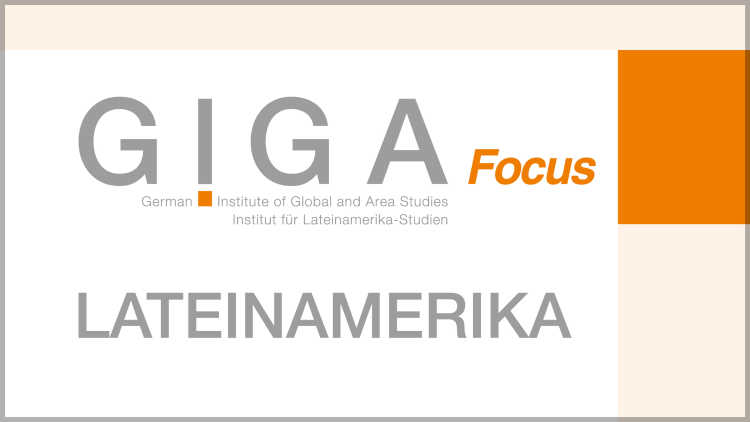- Home
- Publications
- GIGA Focus
- Bolivia: How Absolute is Morales’ Power?
GIGA Focus International Edition English
Bolivia: How Absolute is Morales’ Power?
Number 2 | 2010 | ISSN: 1862-3581
Bolivian president Evo Morales began his second period in office on January 22, 2010, following a sweeping win with 64 percent of the vote in the December 2009 early general election. As a result, Morales can count on a two-thirds majority in the Senate and a close to absolute majority in the Chamber of Deputies. This will allow him to continue with his “refounding of Bolivia” – provided his party can win the upcoming municipal and prefecture elections on April 4.
Analysis
President Morales has managed to consolidate his power. Since the December 6 election he has tilted the current power struggle considerably in his favor by neutralizing most of the opposition. The government’s next steps will be to reform the judicial branch and the electoral court. At the same time, it will have to pass the legal framework for the constitutionally mandated regional, municipal and indigenous autonomic process. Moreover, it will have to step up the political campaign to win prefectures and municipal governments from the opposition in April 2010 as absolute control of government will depend on the outcome of these elections.
Some constraints to the ruling party, the Movement Towards Socialism (MAS), might come from within its ranks. The intellectuals and middle-class assembly members, especially in the Senate, were included in the lists of candidates as part of a strategy to entice middle-class voters to support Morales. The problem might be that these people do not support the totality of the government’s more radical dogmas.
The current opposition, made up of Plan Progreso para Bolivia-Convergencia Nacional and Unidad Nacional, has been significantly weakened in the legislative as well as in the political arena. At present there are doubts as to what role they will play in the new legislature.
The traditional opposition, made up of parties such as MNR, ADN, MIR, CSU, etc., seems to have opted to retreat to the departmental level. These parties will be taking part in the next prefecture and municipal elections in April 2010. They will seek to articulate a new kind of opposition at the departmental level.
Footnotes
Regional Institutes
Research Programmes
How to cite this article
Buitrago Bascopé, Miguel A. Buitrago (2010), Bolivia: How Absolute is Morales’ Power?, GIGA Focus International Edition English, 2, Hamburg: German Institute for Global and Area Studies (GIGA), http://nbn-resolving.de/urn:nbn:de:0168-ssoar-274291
Imprint
The GIGA Focus is an Open Access publication and can be read on the Internet and downloaded free of charge at www.giga-hamburg.de/en/publications/giga-focus. According to the conditions of the Creative-Commons license Attribution-No Derivative Works 3.0, this publication may be freely duplicated, circulated, and made accessible to the public. The particular conditions include the correct indication of the initial publication as GIGA Focus and no changes in or abbreviation of texts.
The German Institute for Global and Area Studies (GIGA) – Leibniz-Institut für Globale und Regionale Studien in Hamburg publishes the Focus series on Africa, Asia, Latin America, the Middle East and global issues. The GIGA Focus is edited and published by the GIGA. The views and opinions expressed are solely those of the authors and do not necessarily reflect those of the institute. Authors alone are responsible for the content of their articles. GIGA and the authors cannot be held liable for any errors and omissions, or for any consequences arising from the use of the information provided.

